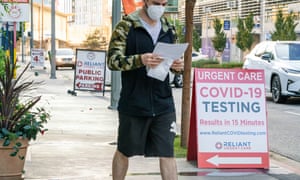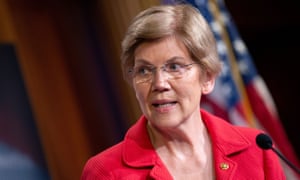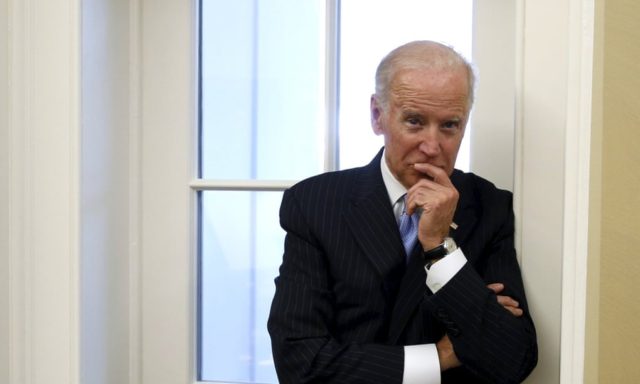If Joe Biden wins the 2020 US election against Donald Trump, the new president-elect will face enormous pressures to implement a laundry list of priorities on a range of issues from foreign policy to the climate crisis, reversing many of the stark changes implemented by his predecessor.
But Biden’s first and most pressing task for his first 100 days in the White House would be to roll out a new nationwide plan to fight the coronavirus crisis, which has claimed more than 220,000 lives in the US and infected millions – more than any other country in the world – as well as taking steps to fix the disastrous economic fallout.
And, while the new president might be fresh from victory, the moderate Biden will also have to wrangle with his own side – a Democratic party with an increasingly influential liberal wing, hungry for major institutional changes to try to answer some of the most urgent questions over the country’s future.
“He basically has to do something historic,” said Saikat Chakrabarti, a Democratic activist and former chief of staff to the progressive New York congresswoman Alexandria Ocasio-Cortez. “He’s being handed a depression, a pandemic, and he’s being elected on a mandate to actually solve this stuff and do something big.”
In the best-case scenario for Biden, he would be elected in a landslide, and the Democrats would flip the Senate, taking control of both chambers of Congress. If that happens, Biden and his team could enact their most ambitious plans for a presidency with the same feel as Franklin Delano Roosevelt’s, which saw the sweeping New Deal recovery and relief programs in response to the economic crisis of the 1930s.
“In many ways, they’re going to be stepping in the same situation that we stepped in in 2009. But in some ways worse,” said the former Obama administration deputy labor secretary Chris Lu, who ran the 44th president’s transition team in 2008. “We came in during the Great Recession, they’re going to be taking over within a recession as well. They have the added and much more difficult challenge of dealing with a public health crisis as well.”
By the time of the inauguration in January 2021, more than 350,000 Americans could have died from coronavirus, according to projections that assume current policies and trajectories are maintained.
Biden’s “first order of business” in office would probably be aimed at containing the death toll and addressing the economic damage, said Neera Tanden, who was director of domestic policy for the Obama-Biden presidential campaign, and went on to be senior adviser at the Department of Health and Human Services (HHS).

The Biden campaign has proposed a science-led plan that includes a national mask mandate (though local authorities would have the final word on implementation), expanding testing and contact tracing, taking steps to prevent surprise medical billing for Covid treatments, and greater federal financial assistance for struggling families.
In Congress, the sense of urgency is on a Covid relief bill that lawmakers have been unable to pass in the past few weeks. While the Democrats have been pushing for a $2tn package, Republicans have balked at the cost, especially for an expansion of testing.
“I think the most important thing is likely to be a legislative package that addresses the virus, and the ability to contain the virus and then responds to the economic pain that the virus has caused,” Tanden said.
Throughout his presidential campaign, Biden has shared a list with voters of what he would do if elected president, many items of which would directly reverse the work of the Trump administration. These include re-entering the Paris climate agreement, which the US is set to exit on 4 November, 24 hours after election day. He would also rejoin the 2015 Iran nuclear deal, in which Tehran agreed to limit its nuclear activities in return for the lifting of harsh economic sanctions. And he would also push for an extension of Barack Obama’s Affordable Care Act, which Trump and his allies have repeatedly attempted to dismantle.
There’s also a strong expectation that Congress would consider some kind of policing reform package following the summer’s mass protests over the police killing of George Floyd in Minneapolis, although it’s unclear if such proposals could ultimately survive the partisan gridlock and sausage making of the legislative process.
And there would be immense pressure for a Biden administration to overhaul the filibuster, an antiquated Senate rule the party out of power has wielded to stall legislation and nominees in the chamber.
The destiny of Biden’s first 100 days largely depends on which party controls the House of Representatives and the Senate – and by how many seats. Incoming presidents often bring in a new Senate majority with them. In 1980, Ronald Reagan’s election carried with him 12 Republican Senate victories. In 2004, when George Bush won re-election, Republicans gained five Senate seats. And when Barack Obama was elected president in 2008, Democrats flipped eight Senate seats. Democrats already hold the House, and this year, the party is favorite to pick up somewhere between one and eight Senate seats. If it can add four seats to its tally, or three seats plus the White House, it would give Democrats a slim majority in the chamber.
Control of the Senate is crucial for a Biden presidency. Without it, much of his agenda is all but certain to stay in limbo. Biden has said there is a hidden swath of sitting Republican senators open to working with Democrats under a Biden administration. But current senators are a bit more pessimistic.
Senator Sherrod Brown, an Ohio Democrat, shrugged when asked if there were more than a handful of Republican senators who could work with Democrats under a Biden presidency.
“All I know is we’ve seen 46 and a half spineless Republicans the last four years and however many in the House who have shown no courage in standing up to the most corrupt, divisive president of our lifetime,” Brown said.

With or without Democratic control of the Senate, however, the first days of a Biden administration are also likely to see a flurry of executive actions addressing urgent foreign policy issues and undoing actions of the Trump administration.
By inauguration day there will be just over two weeks left before the expiration of the New Start treaty, the only arms control agreement to survive the Trump era. If Moscow is willing (and the Russian president, Vladimir Putin, has suggested it is), the treaty can be extended for up to five years by an exchange of diplomatic notes.
Senior Democrats also say Biden will move immediately to restore US membership of the World Health Organization (WHO) and resume financial contributions, announce the US is rejoining the Paris climate agreement, and reverse the Trump administration’s travel bans for travelers from Muslim countries.
Biden has pledged he will also rejoin the 2015 nuclear deal with Iran, the Joint Comprehensive Programme of Action (JCPOA), though the timing of that will depend on a sequencing agreement with Iran on what Tehran would have to do first to return to full compliance with the JCPOA limits on its nuclear activities.
“I think part of what they’re going to be doing is trying to rebuild international order – not to look exactly the same as they used to – but to have once again a focus on international norms, agreements, treaties,” Ben Rhodes, Obama’s closest foreign policy adviser said.
“There are a lot of things that can be done off the bat to pick up as best you can pieces of the infrastructure that were in place in 2016. And then there are going to be other areas where you just have to start from scratch as if a hurricane came in and blew everything down.”
Rhodes cited combatting disinformation and the threats to democracy as new global priorities where institutions and policies might have to be developed from scratch. The Biden platform calls for the convening of a summit of democracies in his first year in office, in an effort to retake the mantle of “leader of the free world” for the US.
There will be pressure from progressives in the party to go beyond a simple reconstitution of the pre-Trump international order, in particular in reassessing US relations with autocratic allies like Saudi Arabia. One option on the table is an early presidential signature on legislation, already agreed by Congress, to curb US support for the Saudi-led war in Yemen.
“There’s a whole list of things that Trump has done with executive power that are fairly easy to reverse – basically reinvesting in the UN, the WHO, the Paris climate accord, the JCPOA,” said Matt Duss, Bernie Sanders’ foreign policy adviser. “The question is, how do you take it to the next step and the step after that and begin to move a new agenda.”
For months, the liberal wing of the Democratic party and the more establishment wing have existed in relative harmony as they came together around a singular mission: preventing Trump from winning a second term.

But tensions are starting to surface over who Biden might fill his cabinet with. Publicly and privately, Democratic groups have polled members, begun strategizing, and offered warning shots on how Biden should staff the leadership of a possible administration.
Biden himself has vowed to make it more diverse than any other. Powerful Democratic leaders have also advocated for a Biden administration to include African Americans running agencies other than the Department of Housing and Urban Development or the Department of Transportation.
But in terms of ideology, liberal Democrats have begun quietly pushing for progressive champions like the Massachusetts senator Elizabeth Warren, Vermont senator Bernie Sanders or Lael Brainard, a member of the Federal Reserve’s board of governors, to get powerful, high-profile positions. Warren has been mentioned as a potential treasury secretary or attorney general. Sanders is eyeing running the Department of Labor. Brainard too has been mentioned as a possible treasury secretary.
Biden is widely expected to bring close allies to the White House if he wins, many of them more centrist than liberal. Ron Klain, Biden’s former chief of staff when he was vice-president in the Obama administration, could return. The Delaware senator Chris Coons, a longtime Biden friend, has been mentioned in foreign policy circles as a possible secretary of state, alongside the former Obama administration national security adviser Susan Rice and the Connecticut senator Chris Murphy, a dark horse. Coons allies circulated a five-page document arguing that he should get the job.
Murphy told the Guardian foreign policy was key to fighting the coronavirus.
“We ultimately can’t fight this virus or any other virus if we don’t have allies and friends, unless we’re involved in the global vaccine effort, unless we’re building our global public health prevention infrastructure,” Murphy said.
Some of the possible appointees are dependent on the outcome of the other 2020 elections. The Alabama senator Doug Jones, a longtime friend of Biden’s and the most endangered Democrat running for re-election, has been mentioned as a possible attorney general. Others have pointed to Warren or Senator Amy Klobuchar, or the former acting attorney general Sally Yates for the post. Biden himself has said he would like to reinstate the civil rights division of the justice department and further embed it in the White House.
But Jones told the Guardian that Biden wants him in the Senate.
“Joe Biden wants me in the Senate and that’s where he is focused to try to help me and I to try and help him,” Jones said in an interview. “And that’s the goal … because I can best help a Biden administration bring together the kind of coalition that’s going to be necessary to get legislation done,” he said.
“That’s the key. He needs a voice like mine in the United States Senate to make things happen, to bring people from both sides of the aisle” together, Jones added.
… just when we need it the most. Millions of readers around the world are flocking to the Guardian in search of honest, authoritative, fact-based reporting that can help them understand the biggest challenge we have faced in our lifetime. But at this crucial moment, news organisations are facing a cruel financial double blow: with fewer people able to leave their homes, and fewer news vendors in operation, we’re seeing a reduction in newspaper sales across the UK. Advertising revenue continues to fall steeply meanwhile as businesses feel the pinch. We need you to help fill the gap.
We believe every one of us deserves equal access to vital public service journalism. So, unlike many others, we made a different choice: to keep Guardian journalism open for all, regardless of where they live or what they can afford to pay. This would not be possible without financial contributions from those who can afford to pay, who now support our work from 180 countries around the world.
Reader financial support has meant we can keep investigating, disentangling and interrogating. It has protected our independence, which has never been so critical. We are so grateful.
We need your support so we can keep delivering quality journalism that’s open and independent. And that is here for the long term. Every reader contribution, however big or small, is so valuable.








